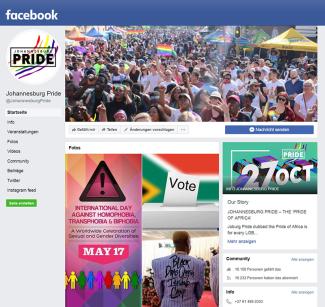Health
Homosexuality is not a disease

A large body of scientific evidence indicates that being LGBTI (lesbian, gay, bisexual, transgender or intersexual) is completely compatible with a normal and healthy life. Clinical literature shows that same-sex sexual and romantic attractions, feelings and behaviours are sound. They are perfectly acceptable variations of human sexuality.
The WHO has a list of diseases, called the “International Classification of Diseases” (ICD). This list is reviewed regularly, in accordance with the latest medical research. In 1977, ICD-9 still listed homosexuality as a disease. However, the WHO later removed the item from the list. The 43rd World Health Assembly endorsed that decision in May 1990. Therefore, the currently used ICD-10 explicitly states that “sexual orientation by itself is not to be considered a disorder.”
Although the WHO has taken homosexuality off its list of diseases, other forms of discrimination still remain, says Susan Cochran, a psychologist and epidemiologist at the University of California Los Angeles (UCLA): “Although being gay or lesbian is no longer classified as a disorder, in its place emerged new categories of ‘gay-related’ diseases.”
For example, homophobia can make teenagers feel harassed and hopeless – and that may add up to the symptoms of clinical depression. Cochran points out that the people concerned are sometimes “classified as mentally ill under current WHO guidelines”. Such second-order mental-health issues are being considered in the preparations for ICD-11.
Sexual orientation continues to be a contentious topic: internationally, expressions of same-sex orientation are stigmatised. Countries such as Saudi Arabia, Iran, Uganda and Russia have enacted anti-LGBTI laws. This stigmatisation and the resulting discrimination may lead to mental-health problems – not homosexuality in itself. The mental-health situation is much better in countries that protect the rights of LGBTI people – South Africa, where gay marriage is legal, is an example. (shmy)
Link
Proposed declassification of disease categories related to sexual orientation in the International Statistical Classification of Diseases and Related Health Problems (ICD-11):
https://www.who.int/bulletin/volumes/92/9/14-135541.pdf














